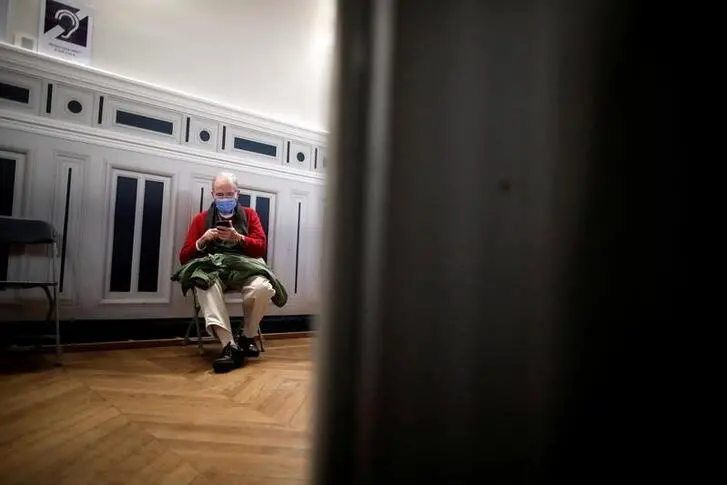PHOTO
PARIS - The spread of the coronavirus in France could sharply accelerate in the coming months due to the emergence of a more contagious variant, two Paris hospital executives said on Wednesday, raising fears of a third lockdown in the country.
Karine Lacombe, head of infectious diseases at Paris' Saint Antoine hospital, and Martin Hirsch, director general of the Paris hospitals system, both warned of the extra strain this could put on healthcare infrastructure.
The two previous lockdowns enforced by the government last year were aimed at preventing hospitals from being overwhelmed by COVID-19 patients.
"We know this variant spreads much more quickly and, above all, it is more infectious. So, yes, we think that it will change the dynamic of the pandemic in the weeks to come," Lacombe told BFM TV.
The spread of this variant, first detected in England, has prompted Britain, Germany and Ireland to re-impose strict lockdowns.
France has stopped short such a measure for now - opting instead for a national 6 p.m. curfew - but members of the government have warned it is not off the table.
"All the models reckon that some time between mid-February, early February, so in about 15 days or three weeks time and by mid-March, we will have an increase that could risk, if we cannot do otherwise, resembling what the English, the Irish and the Germans have been witnessing recently," Hirsh said on France Info radio.
Tuesday's COVID-19 figures show the seven-day moving average of new infections, which averages out daily data reporting irregularities, increased to 18,820, the highest since Nov. 23.
The number of patients in intensive care units for the disease has now gone up for 10 consecutive days, to 2,839, a sequence unseen since early November, when France had just entered its second lockdown.
"We fear it will be extremely tough, especially in March. On a local level ... when the number of admissions in ICU units will ramp up, we probably will need more restrictive measures than the curfew," Lacombe said.
"We must remain alert and act as soon as we spot a deterioration of the indicators."
(Reporting by Sudip Kar-Gupta and Benoit Van Overstraeten; Editing by Andrew Heavens and Alex Richardson) ((benoit.vanoverstraeten@thomsonreuters.com; +33149495339;))





















